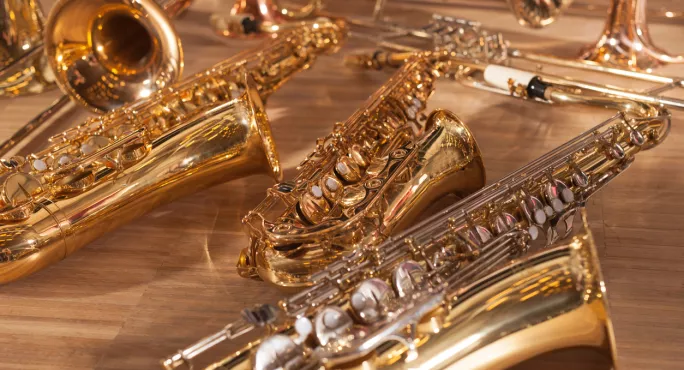‘Delusional’ advice to learn new instrument attacked

Scotland’s exam body has been pilloried by teachers and parents for suggesting that some Higher music candidates “might wish to consider the option of learning a different instrument” just months before their exams.
Teachers voiced their frustration yesterday after the Scottish Qualifications Authority (SQA) made the suggestion - prompted by the lack of face-to-face teaching for many brass, woodwind and singing students.
The situation has come about amid fears that the particles - or aerosols - produced when these instruments are played, or when pupils sing, may lead to the spread of the coronavirus, prompting many councils to move to online lessons.
Background: Covid impact on music teaching revealed by survey
Opinion: ‘Music will be pivotal in the recovery from Covid-19’
News: High levels of engagement in lockdown music teaching
However, music teachers and instructors responding on social media have said that asking these students to learn another instrument is like telling a languages candidates “to change from French to Chinese, three months before their Higher exam”.
Coronavirus: The impact on music education
A 16-year-old student wrote on Twitter: “This is insane. I played my instrument for nine years before Higher music and still found it a challenge. I’m heartbroken for those taking it this year. What they’re asking is ridiculous.”
Another response read: “Dear junior doctors, we would like you all to become ballerinas. Thank you. SQA.”
The SQA, in a consultation on further modifications to music performance published yesterday, wrote: “Brass, woodwind and voice candidates, who are unable to be supported by face-to-face learning and teaching leading up to their assessment, might wish to consider the option of learning a different instrument. This instrument could be closely related to an instrument that they play.”
The example given was that a guitar candidate could consider the option of learning a bass guitar piece or pieces. Or a keyboard player could consider the option of learning a tuned percussion piece or pieces.
However, teachers noted that none of the suggested instruments were “related” to brass or woodwind.
One parent commenting on Facebook said: “I don’t think my daughter would be too happy to chuck flute and voice and learn a [sic] instrument to H level in such a short space of time. Clearly no thought has been given to the effect of such pressure and stress on pupils’ mental health either.”
Alastair Orr, a member of the EIS teaching union’s instrumental and vocal teachers’ network, who is himself a brass instrumental music instructor, told Tes Scotland: “The position of the SQA is for me delusional. If they seriously believe that at this very late stage, and when preliminary exams are already underway in schools across Scotland, that pupils can easily switch to another instrument, and achieve the same level of success, then that reveals a shocking level of ignorance.”
Mr Orr called for clear guidance from the Scottish government on the teaching of wind, brass, bagpipes and singing in schools, saying that in some authorities face-to-face lessons were going ahead but in others they were not.
“There is no doubt that pupils who are able to receive a face-to-face lesson are in a more advantageous position when preparing for exams,” Mr Orr said.
The SQA consultation is due to close on 3 December and can be accessed here.
An SQA spokesperson said: “We have published a consultation on further modifications to the assessment of Higher and Advanced Higher music courses, as we acknowledge the challenges that teachers and lecturers are facing with learning, teaching and assessment in music while complying with Scottish government public health guidelines. We will share the results of the consultation and confirm the modifications to the assessments week commencing 7 December.
“Teachers and lecturers will be best placed to decide which approach will benefit their candidates. There is no requirement for candidates to change instruments. However, this could be considered if this was decided to be an appropriate approach for individual candidates.
“As detailed in the consultation, it will be acceptable for assessment purposes for brass, woodwind and voice candidates to record themselves performing at home.
“We have developed these proposed modifications for music performance with members of our examining teams, who are practising music teachers. The proposed modifications intend to offer more flexibility and optionality for centres and candidates to prepare for assessment due to the current restrictions. These modifications also attempt to ensure performance continues to be assessed and remains a component of the music courses. For Higher music, there will be more time for candidates to prepare for assessment which will need to take place by no earlier than the end of April.
“We welcome feedback from a range of audiences, including young people, to help us to determine how these modifications might work in practice. The consultation is open until Thursday 3 December.”
You need a Tes subscription to read this article
Subscribe now to read this article and get other subscriber-only content:
- Unlimited access to all Tes magazine content
- Exclusive subscriber-only stories
- Award-winning email newsletters
Already a subscriber? Log in
You need a subscription to read this article
Subscribe now to read this article and get other subscriber-only content, including:
- Unlimited access to all Tes magazine content
- Exclusive subscriber-only stories
- Award-winning email newsletters
topics in this article



